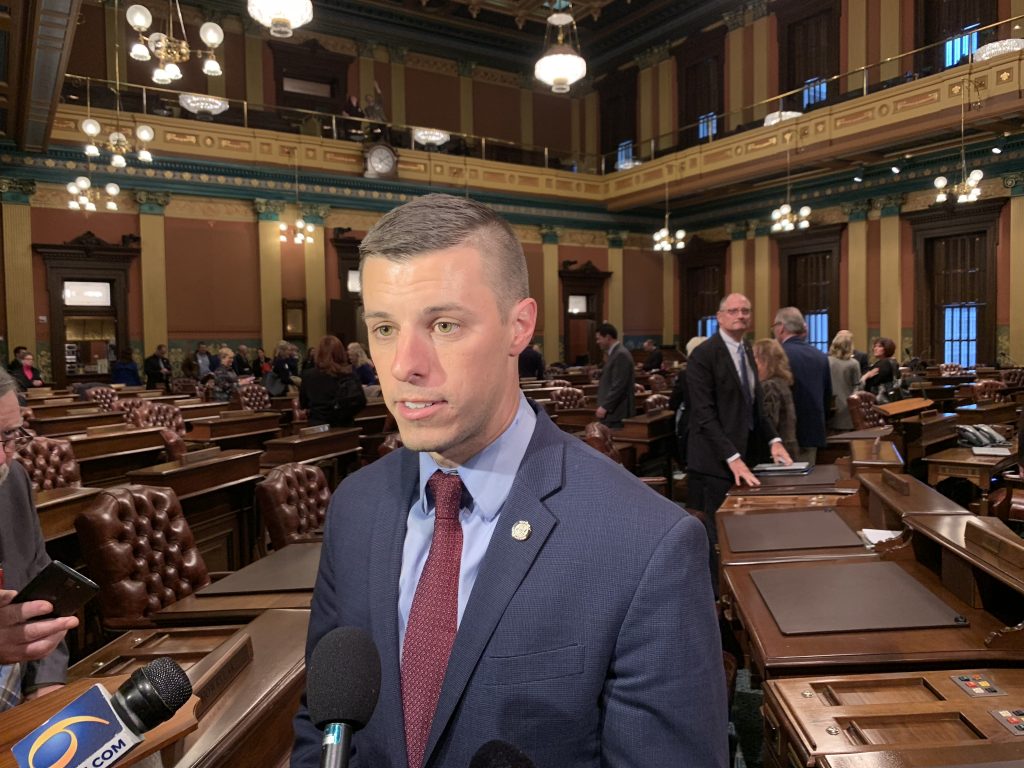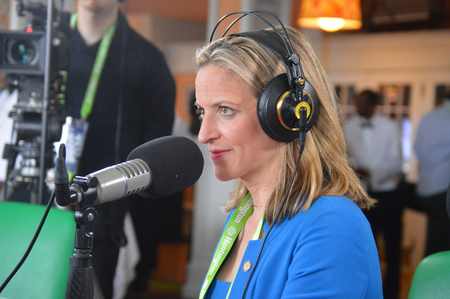In State Budget Haggling, Anti-Gerrymandering Commission Comes Up Short
“Perhaps the greatest irony of this development is that Proposal 2 was an effort to get politics out of the redistricting process,” says Michigan Secretary of State Jocelyn Benson.

The October 1 deadline to pass a state budget and avoid a partial government shutdown is tomorrow.
As lawmakers scrambled to get budgets to Gov. Whitmer ahead of that deadline, Republicans in the state House and Senate significantly reduced the amount of money that would go to help create and organize Michigan’s new redistricting commission.
Voters created the commission under Proposal 2 of 2018, an effort to end partisan gerrymandering in Michigan.
As part of the weekly series MichMash, Jake Neher and Cheyna Roth talk about Republican attempts to scale back funding for that effort.
Click on the player above to hear that conversation, as well as an interview with Michigan Secretary of State Jocelyn Benson.

Secretary of state ‘not surprised’ by cuts
The Republican budget sent to the governor reduces by $1 million the amount of funding Whitmer wanted to direct to the new commission in her budget proposal.
“I’m disappointed that our legislators don’t share my enthusiasm across the board for the opportunity that this presents to our citizens,” Michigan Secretary of State Jocelyn Benson tells WDET’s Quinn Klinefelter.
“But it’s not surprising. And yes, they’ve been doing backflips to not meet the requirements of fully funding the commission and fully funding our department’s work to encourage citizens to be engaged with the commission. So that’s also disappointing.”
Republican leaders say their budget is fully within the bounds of what Proposal 2 established in law. They say passing a balanced budget means many areas of spending had to be reduced to fund other priorities.
Ballot proposals are meant to go around Legislature, but lawmakers still hold the purse strings
Perhaps the greatest irony of this development is that Proposal 2 was an effort to get politics out of the redistricting process.
Although ballot proposals are an important way for citizens to take direct action on issues the Legislature is unwilling to touch, that doesn’t always cut lawmakers out of the equation.
Oftentimes, those ballot measures require some sort of budget appropriation. When that’s the case, legislators have significant power over the implementation and success of those measures.
Enacting change through ballot measures requires follow-up from supporters and opponents
After you cast your vote for or against a ballot measure, you have lots of opportunities to impact the ways those measures are implemented.
Benson, a proponent of an independent redistricting commission before and during her time in office, has tips for supporters of the law.
“You can demand your legislators better fund this in the future,” she says. “We’ll have another cycle next year of budgeting that legislators will have an opportunity to ensure the [redistricting] commission is fully funded.”
Public pressure on lawmakers is not especially high during the budget cycle. Budget subcommittee hearings on specific line items don’t typically get the dialed-up-to-eleven scrutiny lawmakers face during most of their lame duck sessions at the end of their terms. However, the budget makes a huge impact on the state. It’s as important as ever to be tuned into what’s happening at the state Capitol during the budget process.
Finally, your biggest check on public officials and their actions is always your vote. After you vote “yes” or “no” on a ballot proposal, consider how hard individual candidates for office will work to implement those laws.
